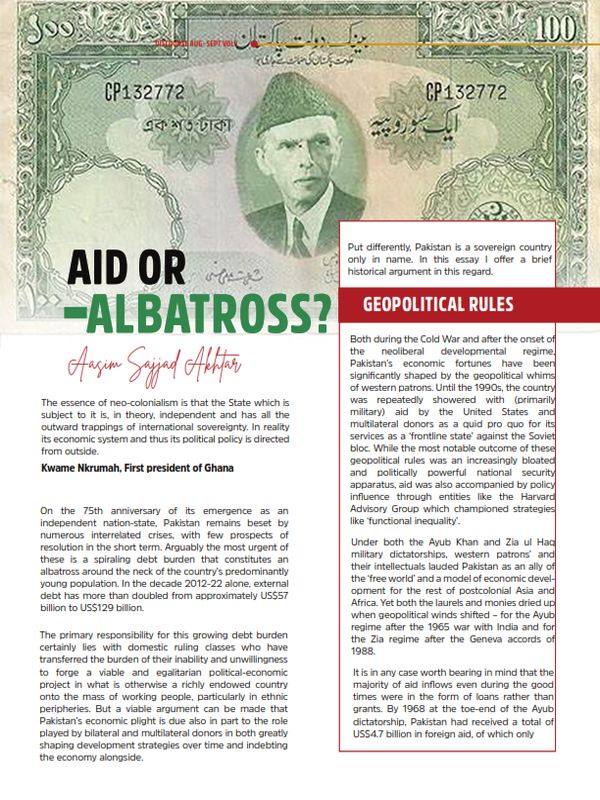
Pakistan Institute of Development Economics
- Home
Our Portals
MenuMenuMenuMenuMenuMenuMenu - ResearchMenuMenuMenuMenuMenuMenuMenu
- Discourse
- The PDR
- Our Researchers
- Academics
- Degree Verification
- Thesis Portal
- Our Portals
Aid Or Albatross? By Aasim Sajjad Akhtar (Article)
The essence of neo-colonialism is that the State which is subject to it is, in theory, independent and has all the outward trappings of international sovereignty. In reality its economic system and thus its political policy is directed from outside.
Kwame Nkrumah, First president of Ghana
On the 75th anniversary of its emergence as an independent nation-state, Pakistan remains beset by numerous interrelated crises, with few prospects of resolution in the short term. Arguably the most urgent of these is a spiraling debt burden that constitutes an albatross around the neck of the country’s predominantly young population. In the decade 2012-22 alone, external debt has more than doubled from approximately US$57 billion to US$129 billion.
The primary responsibility for this growing debt burden certainly lies with domestic ruling classes who have transferred the burden of their inability and unwillingness to forge a viable and egalitarian political-economic project in what is otherwise a richly endowed country onto the mass of working people, particularly in ethnic peripheries. But a viable argument can be made that Pakistan’s economic plight is due also in part to the role played by bilateral and multilateral donors in both greatly shaping development strategies over time and indebting the economy alongside.
Put differently, Pakistan is a sovereign country only in name. In this essay I offer a brief historical argument in this regard.



